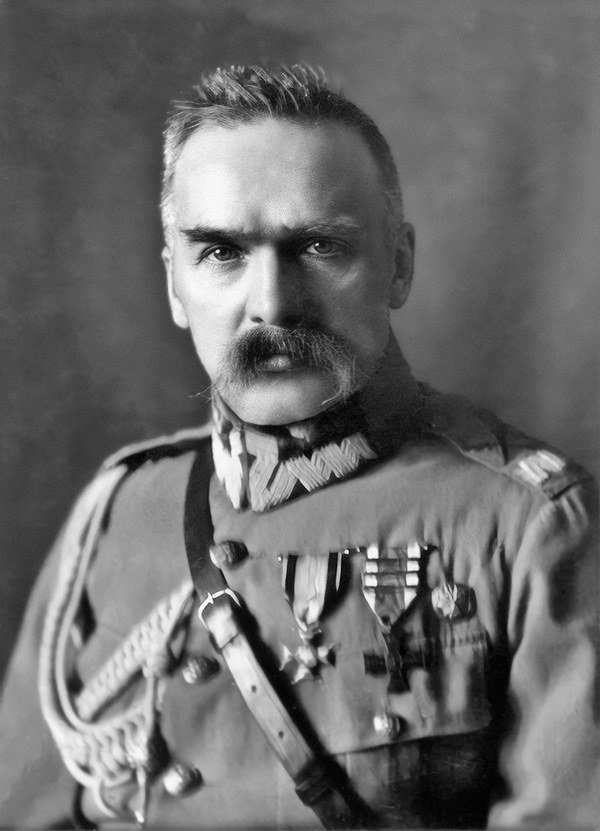Researchers of the history of Polish-Jewish relations in Polish lands have no doubt that Poles were very rarely present in the Jewish press of the Second Republic. Their profiles and achievements were described sporadically. Marshal Piłsudski was an exception. How did various Jewish milieux portray this most important figure for the interwar period?
An analysis of the press of the time leaves no doubt that the diversity of political currents among Polish Jews influenced the image of the Marshal, so that no consistent portrait of him emerged, although he was the Polish politician for whom the Jewish elite, irrespective of political option, showed the sincerest sympathy. Prof. Anna Landau-Czajka, a researcher into the Polish-Jewish relations, concluded that there were three general images of Piłsudski. The leader of Poland appeared in the pages of various Jewish periodicals as a role model, as the creator of an independent Poland and at the same time the embodiment of Poland. He was also seen as a defender of Polish Jews.
The Marshal was presented as a template of virtues and an heir to all great Poles. The Jewish historian Aleksander Haftka (1892-1964) wrote that he was “a hero-genius, concentrating in the astonishing power of his personality all the loftiest and noblest spiritual qualities of his Nation”. He also called him a “charming and enchanting figure”.
Jews particularly emphasised Piłsudski’s contribution to the regaining of independence in 1918-1921, with popular Jewish newspapers comparing him to Sobieski and seeing him as a defender of Europe who saved it from the ‘Bolshevik invasion’. The second event, after the military action at the threshold of Poland’s independence, was the May coup of 1926. Consistently after many years, despite many remarks, various Jewish environments evaluated him positively. However, the Jewish elite did not see the coup as a sanation, i.e. a moral revival, but above all as an important historical moment in which nationalists and conservatives were forcibly removed from power.
These images did not function in isolation from political reality. Jewish journalists, for whom the simultaneous struggle for full equality for Jews in Poland and the elimination and reduction of anti-Semitism became a priority, referred to this figure particularly often when they wanted to present their arguments to achieve their goals. This was the purpose of frequently recalling the figure of the Marshal as a defender of the Jews, a kind of firewall against the rule of Piłsudski’s opponents.





